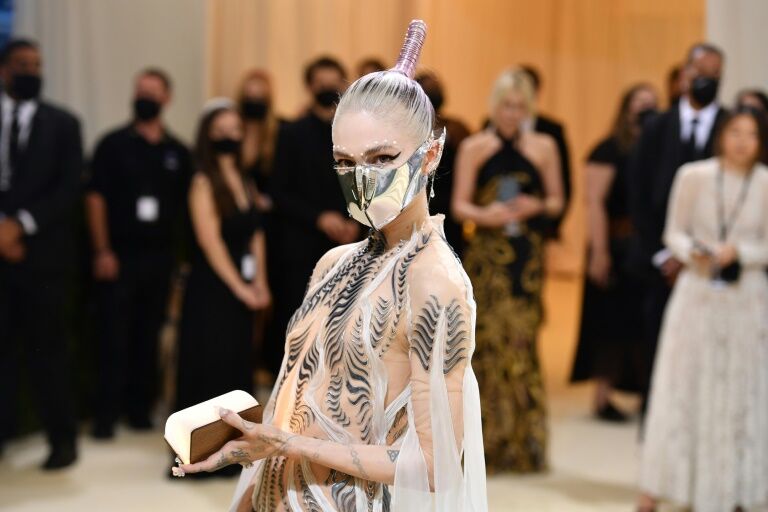Grimes okays use of her voice in AI-generated songs for 50% royalties

Canadian singer Grimes has recently announced that she is perfectly content with allowing her voice to be utilised for AI-generated songs, provided she receives a 50% share of the royalties. The 35 year old artist stated in an Instagram post that any AI-produced hit that featured her voice would be treated in the same manner as if it were a collaboration with another fellow artist.
“Feel free to use my voice without penalty,” Grimes said in her verified Instagram account post. “I’ll split 50% royalties on any successful AI-generated song that uses my voice.”
The talented producer, songwriter, and performer went on to clarify that she has no commitments to a record label; thus, her offer can be honoured with no legal hindrance. Grimes’ statement followed news of AI algorithms being employed to mimic the voices of fellow Canadian musicians Drake and The Weeknd.
“Heart On My Sleeve,” a viral song released last Friday, featured AI-generated renditions of the two artists and was briefly accessible on streaming platforms such as Spotify and Apple Music. However, it was soon removed after Universal Music Group, the parent company of the subsidiary that publishes both Drake and The Weeknd, claimed that the AI-generated song violated copyright laws and demanded its removal.
The use of AI-generated music has become a contentious topic within the industry. While some condemn the potential for copyright breaches, others extol its highly sophisticated capabilities. The rapidly advancing generative AI from OpenAI has generated much debate over whether its technology duly respects the intellectual property rights of artists and creators.
Grimes, who has been romantically linked to Tesla CEO Elon Musk, shares two children with the technology magnate, one of whom was born via surrogate. Despite having significant personal investments in the technology sector, Musk has previously described AI as a potent threat to humanity.
As artificial intelligence (AI) continues to develop at an unprecedented rate, the intersection of creative industries and AI is becoming more complicated. While advancements in generative technology have opened new avenues for artists to collaborate with AI, it undoubtedly raises legal and ethical concerns about intellectual property rights.
Grimes’ offer to share royalties with successful AI-generated songs featuring her voice potentially heralds a new era where artists willingly collaborate with AI technology. Her willingness to embrace the potential of artificial intelligence may encourage further industry discussions about the appropriate use of AI-generated content within the realm of music.
Ultimately, as the boundaries between human creativity and AI-generated artistry blur, the music industry and creators alike must confront the novel challenges that arise. By engaging in open dialogue and exploring the balance between the artistic value of AI-generated content and the rights of creators, the music industry can establish fair and equitable practices that safeguard intellectual property rights whilst promoting innovation and collaboration.
Join the conversation and have your say on Thailand news published on The Thaiger.
Thaiger Talk is our new Thaiger Community where you can join the discussion on everything happening in Thailand right now.
Please note that articles are not posted to the forum instantly and can take up to 20 min before being visible. Click for more information and the Thaiger Talk Guidelines.









